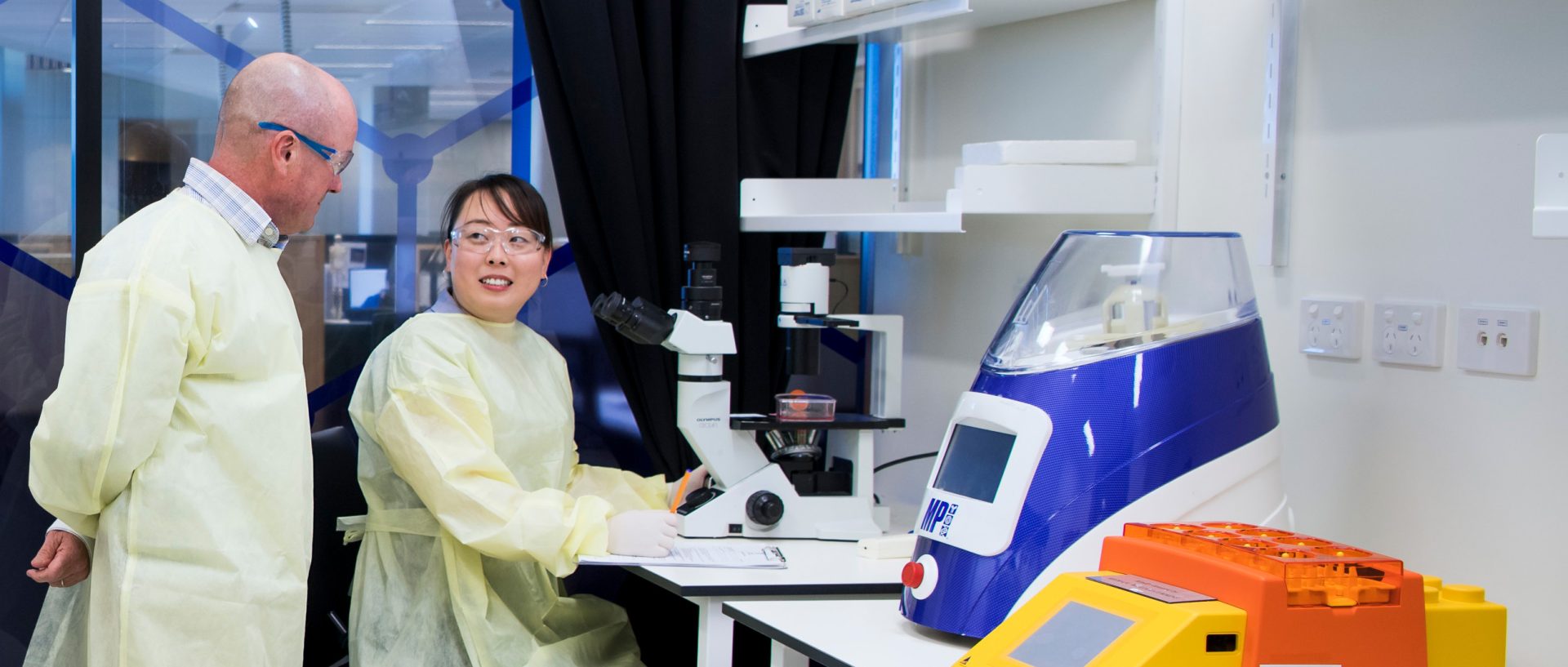Report
Sementis’ Quest for an Australian Second-Generation COVID-19 Vaccine
A South Australian start-up biotech company, Sementis Limited, has joined the global quest to develop a second-generation...

This Emerging biotechnology company has teamed up with University of South Australia through a STEM+ Business project looking to fast track drug discovery.
Challenge
Almost one in five Australians suffer from an allergy. Cat allergy for example, affects five to 10 per cent of the population.
Emerging biotechnology company Sementis is the developer of innovative vaccines to prevent infectious diseases and treat immune-mediated diseases. Using their novel proprietary vaccine delivery platform, the Sementis Copenhagen Vector (SCV), Sementis aims to improve current broad and long term treatments for allergies. Having already worked on developing a therapeutic peanut hypo-allergy vaccine for the treatment for peanut allergy and a preventative vaccine for an often debilitating disease transmitted by mosquitoes called Chikungunya, Sementis sought to tackle cat allergy next.
To do this, Sementis needed to invest in further research to advance their vaccine technology.
Solution
Sementis, collaborating with the University of South Australia, had already co-funded formal research projects with the support of an ARC Linkage grant and an AusIndustry Research Connections grant making them eligible for the STEM+ Business program.
Through previous research engagement with University of South Australia (UniSA), Sementis had built a trusted relationship with early career researcher Dr Tamara Cooper. Dr Cooper, a PhD in Molecular Biology (University of Adelaide/CSIRO) boasts a sophisticated molecular, cellular and immunological skillset, which, together with Sementis-specific skills and knowledge, made her a perfect fit for this STEM+ Business engagement.
Together, Sementis and Dr Cooper embarked on a STEM+ Business project facilitated by SME Connect: Constructing a cat hypoallergy vaccine and testing it in a preclinical proof-of-concept mouse model of cat allergy.
Results
Through the STEM+ Business program, Sementis were able to fast-track the application of their SCV platform against allergic disease and build a knowledge base for tackling more complex allergies in the future.
For Dr Cooper, the project has presented opportunities for advanced technical and analytical training in molecular biology, virology and immunology, as well as providing invaluable commercial experience and understanding of business directives and strategies. This will support a flexible career for Dr Cooper that can either be academic, commercial or a combination of both.
Since commencing the project in August 2016, a number of analytical assays have been developed to support the clinical development of the vaccine, but most importantly, Sementis’ portfolio has been strengthened and the company has begun establishing commercial relationships with vaccine manufacturers and licensees.
“Our experience working with the STEM+ Business team and our researcher Tamara has been great, and the credibility of working with CSIRO has had a knock-on effect for our business. The program has helped take Sementis’ technology to next stage and provided a nice pathway to accessing CSIRO’s manufacturing capability for upscaling our vaccines.”
— Paul Howley, CEO Sementis
“The SIEF STEM+ fellowship provides an environment that neither academia, nor industry alone can and my hope is this will better equip me to make a real-world contribution to health in the future.”
— Tamara Cooper, Researcher
This program is supported by the Science and Industry Endowment Fund (SIEF)